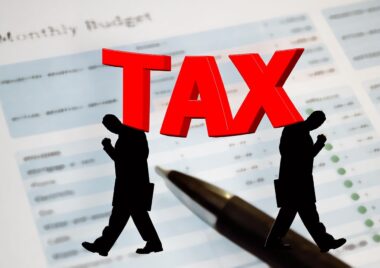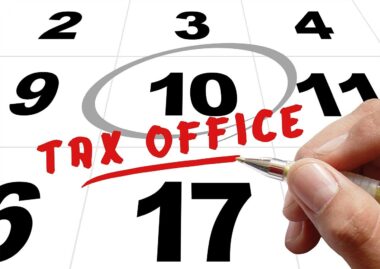Preparing Your Business for a Tax Appeal Hearing
Preparing your business for a tax appeal hearing requires careful planning and understanding of the process involved. First, learn the grounds for your appeal and gather all necessary documentation. Common reasons for appeals include disputes over valuation, classification of income, or eligibility for deductions. Seek expert advice from a tax professional with experience in tax appeals. They can provide insights into the options you have, what evidence is needed, and how to present your case effectively. Planning includes identifying the required forms and submitting them by the deadlines. Do not forget to prepare a clear, concise statement explaining your position regarding the dispute. This should include summaries of key documents and relevant tax laws that support your argument. Creating organized files can help present evidence methodically during the hearing. Consider involving your accounting team as they often possess detailed knowledge of your financial situation which is crucial during the appeal. Reflect on previous audits or tax disputes you may have faced; understanding these can provide valuable lessons to improve your chances of a successful outcome this time.
Understanding the nature of your appeal is essential to navigate through the process effectively. Consider what the tax authority’s position is regarding your business. Detailed analysis of their arguments can help you anticipate counterpoints they might raise during the hearing. It is also beneficial to develop a narrative around your financial statements to ensure they align with your appeal. Practice presenting your case before family or colleagues to hone your verbal communication skills. Clear articulation of your arguments can lead to better reception and understanding of your case. If necessary, bring in external witnesses who can lend credibility by supporting your claims. To strengthen your position, research similar cases and their resolutions as precedents. This can provide you with a solid foundation for your argument. Look for published rulings or court cases that align closely with your situation. This will not only give you confidence but also demonstrate the legitimacy of your disagreement to the board. Being well-prepared to discuss potential resolutions shows your willingness to engage and negotiate, which could lead to a favorable outcome.
Document Preparation and Organization
Effective document preparation is critical for a successful tax appeal hearing. Start by compiling all financial records, as well as correspondence with the tax authority. Having these documents organized will make it much easier for you and your advisors to reference important information during your appeal. Ensure that all documents are clearly labeled and accessible. It might also be helpful to create a chronological timeline of events that led to your appeal. This could include notes on meetings with tax professionals or responses from the tax authority. Being transparent in your records can bolster your credibility. Highlight discrepancies in the tax authority’s assessment with supporting evidence. Use charts and graphs to present numerical data visually, making it easier for the hearing officer to follow your argument. Additionally, prepare a summary sheet with key points that encapsulate your position succinctly. Organizing your documents in a binder or digital folder with tabs can streamline the presentation process. This organized approach will demonstrate professionalism and preparedness, influencing the hearing officer’s perception positively.
During the hearing, it’s vital to remain calm and composed. The atmosphere can be intimidating, but professionalism is critical. Address all questions respectfully and take your time to think before answering, which shows confidence. Use clear and straightforward language to articulate your points, avoiding jargon that might confuse the hearing officer or other attendees. Actively listen to questions or objections raised by the tax authority. This will allow you to respond more effectively and identify areas that need further clarification. If new evidence arises during the hearing, be ready to discuss its relevance briefly. Maintain a balance between presenting your case and allowing for discussions; this can lead to constructive dialogue. Always focus on solutions rather than dwelling on conflicts. If the discussion seems to move away from the core issues, respectfully steer it back to the points that reinforce your position. This will help keep the proceedings productive and focused on resolution. Lastly, don’t hesitate to ask for a brief recess if you feel overwhelmed; taking a moment to regroup can help maintain clarity.
Post-Hearing Actions and Follow-Up
After the hearing, there are several steps you should follow to ensure you stay informed and proactive regarding your appeal’s outcome. First, closely monitor for any written decisions from the tax authority. Typically, they will issue a conclusion outlining their findings. If the decision is favorable, ensure you understand any changes in your tax situation going forward. If the outcome is not in your favor, take time to process the decision and evaluate your options. You may have the right to further appeal this decision, depending on local laws. Seek advice from a tax attorney about the merits of further action. Additionally, be sure to communicate with your financial team to adjust your tax planning strategies based on the outcome. Document lessons learned throughout the process to improve future dealings with the tax authority. This reflective practice can help you identify areas of improvement and prepare for any future disputes. Keep records organized and accessible for any necessary follow-ups or discussions with tax professionals.
Networking with other business owners who have navigated tax appeals can provide valuable insights. Engage in local business associations or online platforms where tax issues are discussed. Hearing their experiences can help you gain a clearer understanding of what to expect. Furthermore, consider sharing your story and experiences during these interactions. This can foster a community of support while also helping others who might be in a similar position. If possible, attend workshops or seminars focused on tax appeal strategies. These events often feature expert speakers and offer practical tips tailored to business owners. They provide networking opportunities that may connect you with legal professionals specializing in tax law. Building these relationships can prove invaluable for future concerns or disputes. Find a mentor who’s experienced in tax matters, as they may help you navigate complex tax situations through their guidance. The knowledge shared through these connections can lead to better preparedness and confidence in handling pending tax issues or preparing for future hearings.
Conclusion and Final Thoughts
Preparing for a tax appeal hearing is an involved process that requires attention to detail and strategic planning. Start with comprehensive documentation, establishing a clear narrative for your case based on facts and analysis. Being aware of the tax authority’s stance and counterarguments will empower you to present a stronger case. Document organization is paramount; it will enhance your professionalism and maximize effective communication of your position. Post-hearing, remaining proactive in monitoring results is essential while also keeping lines of communication open among your financial advisors. Engaging with your community can provide insights and support for future situations. The tax appeals process might challenge even seasoned business owners, but thorough preparation can lead to satisfactory resolutions. By committing to continuous learning and improvement, you will develop a framework that not only prepares you for challenges but also enhances your overall tax compliance strategy moving forward. Remember that each experience is an opportunity for growth which ultimately benefits your business. Stay informed, committed, and connected to build resilience in future dealings with taxation disputes.
This is the eighth and final paragraph, ensuring completeness of the topic discussed throughout.





